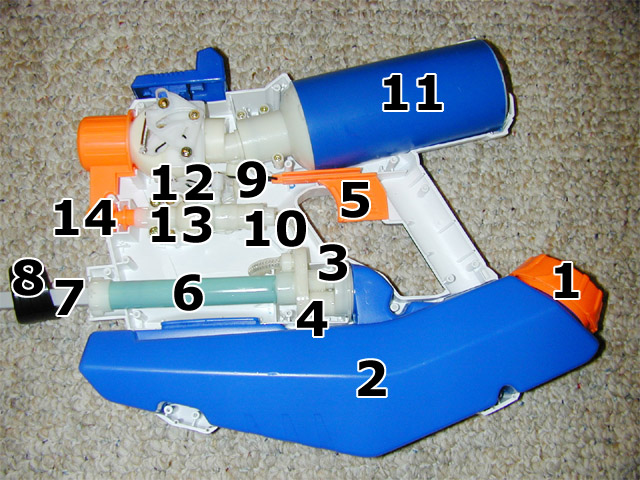Internals Explained
Written by Drenchenator
Last updated on 2008-06-04
| Arctic Blast, XP 310, CPS 2100 | Toggle Numbers | ||
|
|||
Reservoir Cap
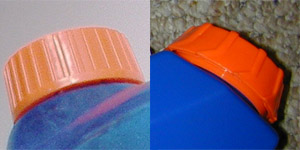
The reservoir cap keeps any water in the reservoir in the reservoir. When unscrewed, the user can refill the gun.
Reservoir
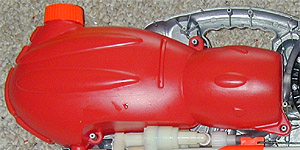
The reservoir holds the water that is not the pressure chamber.
Check Valves and Relief Valves
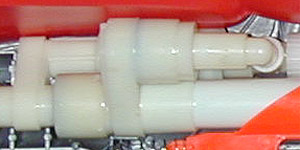
The heart of a water gun is usually not the pressure chamber but the things that allow the pressure to build: the check valves. A check valve is a valve that only allows flow in one direction. Without them, a Super Soaker would not work. One is the inlet to the pump; the other, the outlet. For more into how the dual check valve system works and is used, read our article titled Separate Chamber Design.
The relief valve is a special kind of check valve. It stops water from entering the chamber is the pressure is beyond what some people call the "High Pressure Limit." It effectively acts as a governor for the gun. For more information about the relief valve, read our article on disabling it, which many times is not a very good idea.
Trigger
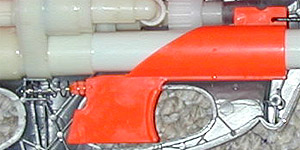 |
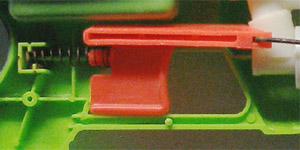 |
| Pump-guided | "Floating" |
The trigger is a mechanism that activates the firing of the gun. There are two major types in water guns: the pump-guided kind (the first one) and the "floating" variety (the second). Both typically need a spring to help push the trigger back into place when not held down.
Pump Tube and Rod

The pump tube (also known as the shaft) is the tube that surrounds the pump rod, the pipe that goes inside. The pump rod has seals at one end to assure that no water leaks out during pumping and to make pumping as efficient as possible.
Pump Handle
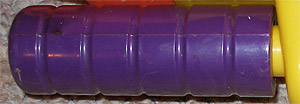 |
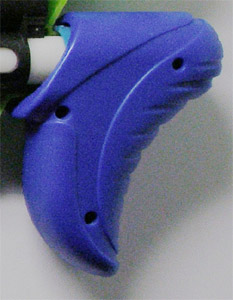 |
| Horizontal | Vertical |
The pump handle is a grip the user holds while pumping. There are two varieties: the horizontal (first photo) and the vertical pump grip (second photo).
Trigger Wire

The trigger wire is a rigid metal wire that connects the trigger to any mechanism that opens the firing valve.
Tubing
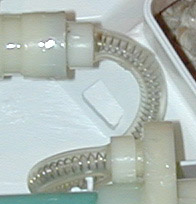 |
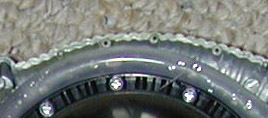 |
Some water guns use tubing to connect the pump to the chamber.
Pressure Chamber
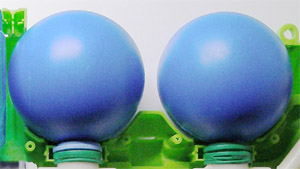 |
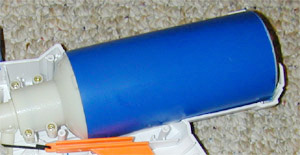 |
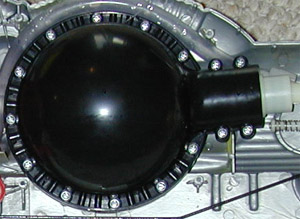 |
The pressure chamber is where all the action happens. For more information on how the pressure chamber works, read our article on how water guns work.
Firing Valve Opening Assembly
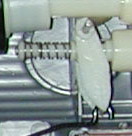 |
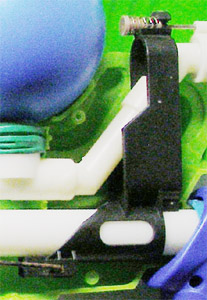 |
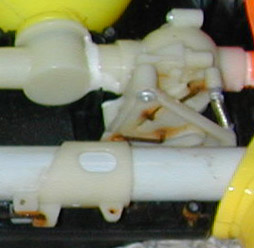 |
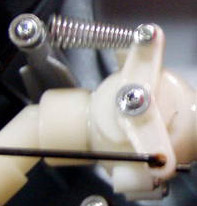 |
| Spring and lever (CPS 2100) | "Tower" (XP 310) | Max-D mechanism | Dual arm |
One of the more complicated and varied pieces of a water gun is the firng valve opening assembly. There are four major types: spring and lever, "tower," Hasbro's Max-D mechanism, and the dual arm assembly. The spring and lever kind is very common in the CPS series. The "tower" is used in many XP guns. The Max-D mechanism is used in all water guns made by Hasbro since the Max-D line; hence the name. Buzz Bee Toys introduced a simpler dual arm mechanism that breaks more easily and uses it in their guns.
Firing Valve
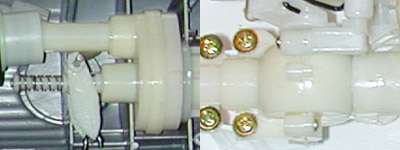
The firing valve controls flow through the nozzle. For more information, read this article.
Nozzle
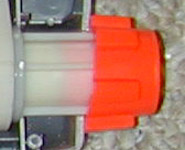
The nozzle shapes and forms the stream before it leaves the gun. For more information, read this article.
